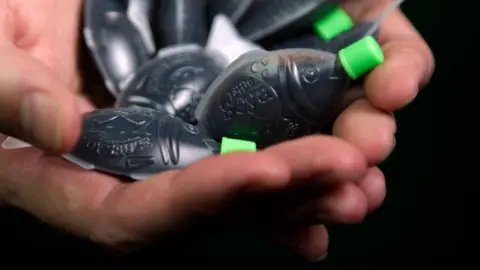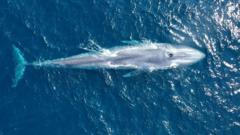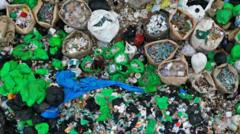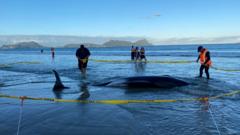Microplastics have infiltrated nearly every corner of the environment. Now, in a groundbreaking study published in the journal PLOS One, scientists have detected these tiny plastic particles in the breath of bottlenose dolphins for the first time. Dolphins, prevalent globally and often found near densely populated coastal regions, are now serving as indicators of environmental pollution.
Each year, approximately 2 million tons of plastic waste are dumped into the oceans. In addition to marine debris, plastic also floats in the air, posing additional exposure risks. This latest study suggests that inhalation could be a significant pathway through which marine mammals, including dolphins, encounter microplastics. These particles, which result from the breakdown of larger plastics, are associated with adverse health effects such as inflammation, cell damage, and exposure to harmful chemicals.
Leslie B. Hart from the College of Charleston, who co-directed the research, emphasized the pervasiveness of plastic, stating, "We have plastic everywhere. There’s really no safe place to get away from it." Further research has shown other animals, like wild birds in Japan, are also susceptible to inhaling microplastics, although studies remain limited.
Moreover, it's estimated that humans as well ingest or inhale over 100,000 microplastic particles annually through food, water, or air. Quantifying the extent of plastic pollution in marine environments is crucial for understanding its broader impact on wildlife and potentially on human health. Dolphins act as sentinels, providing valuable insights into how pervasive the problem of microplastic pollution has become.
Each year, approximately 2 million tons of plastic waste are dumped into the oceans. In addition to marine debris, plastic also floats in the air, posing additional exposure risks. This latest study suggests that inhalation could be a significant pathway through which marine mammals, including dolphins, encounter microplastics. These particles, which result from the breakdown of larger plastics, are associated with adverse health effects such as inflammation, cell damage, and exposure to harmful chemicals.
Leslie B. Hart from the College of Charleston, who co-directed the research, emphasized the pervasiveness of plastic, stating, "We have plastic everywhere. There’s really no safe place to get away from it." Further research has shown other animals, like wild birds in Japan, are also susceptible to inhaling microplastics, although studies remain limited.
Moreover, it's estimated that humans as well ingest or inhale over 100,000 microplastic particles annually through food, water, or air. Quantifying the extent of plastic pollution in marine environments is crucial for understanding its broader impact on wildlife and potentially on human health. Dolphins act as sentinels, providing valuable insights into how pervasive the problem of microplastic pollution has become.

















